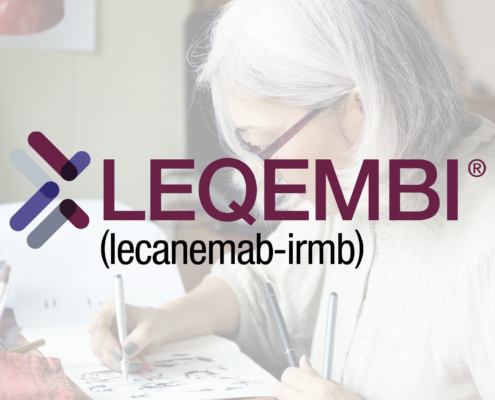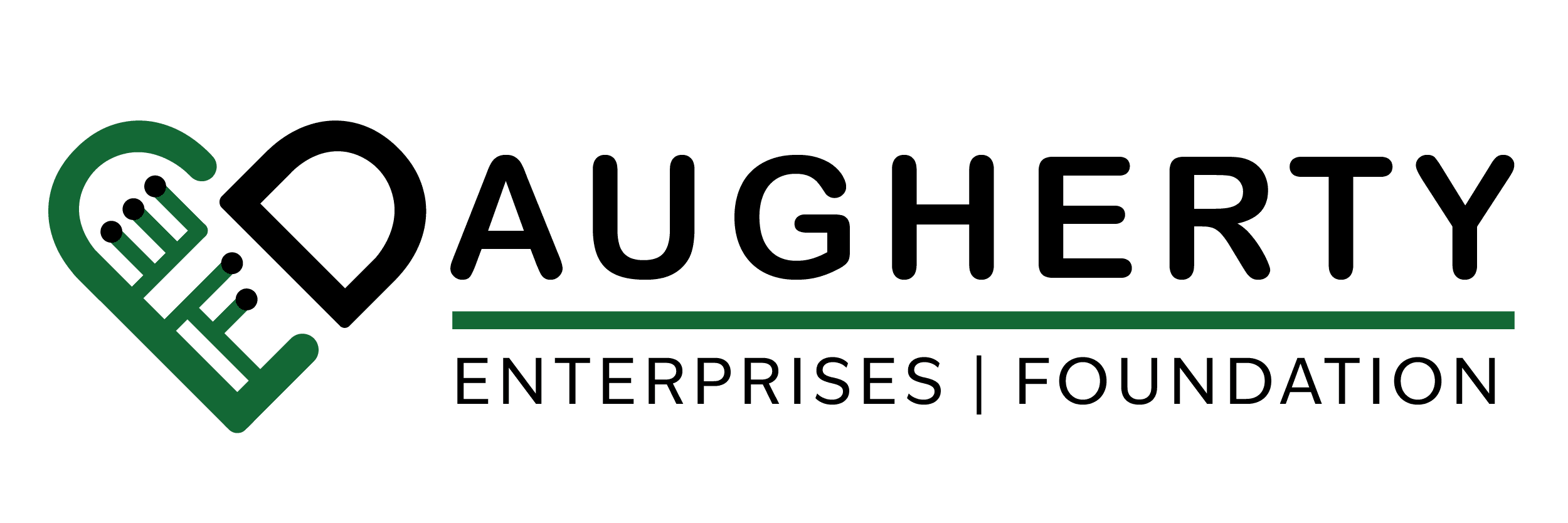What Is Alzheimer’s Disease? An Introduction
When a loved one starts forgetting important dates, repeating conversations, or struggling to navigate daily life, it’s easy to feel overwhelmed, confused, or even afraid.
When a loved one starts forgetting important dates, repeating conversations, or struggling to navigate daily life, it’s easy to feel overwhelmed, confused, or even afraid.

These signs might seem subtle at first, but they can signal something more serious: the early stages of Alzheimer’s disease. Understanding what Alzheimer’s is and isn’t is the first step toward getting answers, support, and peace of mind. Join us as we help you get that understanding here:
Alzheimer’s disease is a degenerative brain condition that slowly destroys memory, thinking skills, and, eventually, the ability to carry out simple tasks. It’s the most common form of dementia, responsible for up to 80% of all cases.
Unlike general forgetfulness that comes with age, like misplacing your glasses or momentarily blanking on a name, Alzheimer’s causes more persistent and progressive memory problems. Over time, it impacts communication, decision-making, behavior, and personality. In later stages, it interferes with basic bodily functions like walking or swallowing.
The disease develops gradually and progresses over time. On average, someone diagnosed with Alzheimer’s will live another 4–8 years, though some live much longer depending on their overall health and when the diagnosis is made.
Alzheimer’s goes beyond losing memory, it involves losing independence, relationships, and your sense of self. While it sounds very scary, understanding the disease better can help families face it with more clarity, compassion, and control.
Let’s clear up one of the most confusing aspects right away: Alzheimer’s is a disease. Dementia is a symptom.
Dementia isn’t a diagnosis in itself. It’s a general term used to describe a group of symptoms related to cognitive decline, including memory loss, confusion, language problems, and impaired judgment. Think of dementia like a fever—it tells you something’s wrong, but not what’s causing it.
Alzheimer’s is the most common cause of dementia, but it’s not the only one. Other forms of dementia include:
Why does this distinction matter?
Because different types of dementia may require different care strategies, medications, or support approaches. For instance, medications that are helpful in Alzheimer’s might not work for someone with frontotemporal dementia, and vice versa. A clear diagnosis helps families make informed decisions and reduces frustration when treatments don’t seem to “work.”
Curious about how Alzheimer’s compares to other types of dementia? Check out our blog The Difference Between Alzheimer’s and Dementia A Beginner’s Guide.
Alzheimer’s disease doesn’t show up overnight. It creeps in gradually, often starting with mild memory lapses that may be easy to dismiss as “just aging.” But as time goes on, the symptoms grow more noticeable and more disruptive.
Loved ones may also notice shifts in mood or behavior, such as irritability, withdrawal, or becoming unusually anxious or suspicious.
As the disease progresses, memory loss worsens, and cognitive function continues to decline. At this stage, individuals may:
In the final stage of Alzheimer’s, people often:
These stages don’t follow a strict timeline; everyone’s journey is different. But knowing the general progression can help families prepare emotionally, practically, and medically.
While the exact cause of Alzheimer’s is still being researched, scientists believe it’s a combination of genetic, environmental, and lifestyle factors that damage the brain over time.
Two abnormal protein buildups in the brain are strongly associated with the disease:
These changes begin years ( or even decades) before symptoms appear.
Other contributing factors may include:
In short, Alzheimer’s doesn’t stem from one cause, but from a complex interplay of biological processes that accumulate over time. That’s part of why it’s been such a difficult disease to treat or cure.
Many families wonder: “If my parent had Alzheimer’s, does that mean I’ll get it too?”
Maybe—but not necessarily. Most cases of Alzheimer’s are sporadic, meaning they occur without a clear family history. However, genetics can influence your risk. The biggest genetic factor is a gene called APOE-e4, which is linked to a higher likelihood of developing Alzheimer’s later in life.
Here’s how the genetics break down:
But many people with APOE-e4 never develop Alzheimer’s, and many people who do get Alzheimer’s don’t carry the gene at all.
There’s also a rare, inherited form called early-onset familial Alzheimer’s, which can affect people as young as their 30s or 40s. This version is caused by specific genetic mutations and is extremely uncommon (fewer than 1% of cases).
The takeaway? Your genes may load the gun, but your lifestyle, environment, and overall health play major roles in whether or not it “fires.”
Getting a diagnosis for Alzheimer’s disease can be emotionally overwhelming, but it’s a critical first step toward managing symptoms and planning for care.
There’s no single test that can definitively diagnose Alzheimer’s. Instead, doctors use a combination of tools to evaluate a person’s memory, behavior, and brain health. This may include:
It’s important to note that early diagnosis matters. It allows patients to access treatments sooner, plan ahead, and participate in clinical trials. If you or someone you love is experiencing memory loss or cognitive issues, don’t wait: reach out to a primary care physician or memory specialist.
Right now, there is no cure for Alzheimer’s disease. But that doesn’t mean there’s no hope.
Treatment focuses on slowing the progression of symptoms, managing behavior and mood, and improving quality of life for both patients and caregivers.
Behavioral symptoms like anxiety, aggression, sleep disturbances, and depression can be managed through a combination of medications, environmental adjustments, and caregiver education.
While these approaches don’t stop the disease, they can make a real difference in the patient’s emotional well-being and day-to-day functioning.
There’s no guaranteed way to prevent Alzheimer’s, but research increasingly shows that you can reduce your risk, or at least delay the onset, by taking care of your brain and body. Brain-healthy habits include:
These steps don’t just help your brain—they’re good for your heart, mood, and overall longevity.
Alzheimer’s disease is one of the most complex and challenging health conditions we face. Whether you’re worried about your memory, supporting a loved one, or simply trying to learn more, knowledge empowers you to take the right steps toward diagnosis, care, and connection.
If you’re looking for next steps, need help navigating care options, or just want to talk to someone who understands, Daugherty Enterprises is here to help. Reach out today to learn more about what we’re doing for Alzheimer’s and how we could help you.
 https://daughertyenterprises.com/wp-content/uploads/2026/02/businesswoman-using-computer-presentation.jpg
1250
2000
Abstrakt Marketing
/wp-content/uploads/2025/03/Daugherty-Foundation-Logo.png
Abstrakt Marketing2026-02-26 08:45:232026-03-02 09:52:21Enhancing Decision-Making in Finance: The Power of AI Simulation Training
https://daughertyenterprises.com/wp-content/uploads/2026/02/businesswoman-using-computer-presentation.jpg
1250
2000
Abstrakt Marketing
/wp-content/uploads/2025/03/Daugherty-Foundation-Logo.png
Abstrakt Marketing2026-02-26 08:45:232026-03-02 09:52:21Enhancing Decision-Making in Finance: The Power of AI Simulation Training https://daughertyenterprises.com/wp-content/uploads/2026/02/Young-nurse-checking-appointments-list-on-digital-tablet-in-busy-medical-office.jpg
1250
2000
Abstrakt Marketing
/wp-content/uploads/2025/03/Daugherty-Foundation-Logo.png
Abstrakt Marketing2026-02-26 08:44:522026-03-02 09:52:21Revolutionizing Nursing: Using AI Simulators to Build Critical Soft Skills
https://daughertyenterprises.com/wp-content/uploads/2026/02/Young-nurse-checking-appointments-list-on-digital-tablet-in-busy-medical-office.jpg
1250
2000
Abstrakt Marketing
/wp-content/uploads/2025/03/Daugherty-Foundation-Logo.png
Abstrakt Marketing2026-02-26 08:44:522026-03-02 09:52:21Revolutionizing Nursing: Using AI Simulators to Build Critical Soft Skills
 https://daughertyenterprises.com/wp-content/uploads/2025/09/Why-Cognitive-Engagement-Matters.jpg
1250
2000
Abstrakt Marketing
/wp-content/uploads/2025/03/Daugherty-Foundation-Logo.png
Abstrakt Marketing2025-09-26 09:00:082026-03-02 09:52:21Alzheimer’s Prevention: Why Cognitive Engagement Matters More than Ever
https://daughertyenterprises.com/wp-content/uploads/2025/09/Why-Cognitive-Engagement-Matters.jpg
1250
2000
Abstrakt Marketing
/wp-content/uploads/2025/03/Daugherty-Foundation-Logo.png
Abstrakt Marketing2025-09-26 09:00:082026-03-02 09:52:21Alzheimer’s Prevention: Why Cognitive Engagement Matters More than Ever https://daughertyenterprises.com/wp-content/uploads/2025/09/Understanding-Leqembi.jpg
1250
2000
Abstrakt Marketing
/wp-content/uploads/2025/03/Daugherty-Foundation-Logo.png
Abstrakt Marketing2025-09-22 08:51:502026-03-02 09:52:21Understanding Leqembi: A Potential Breakthrough in Alzheimer’s
https://daughertyenterprises.com/wp-content/uploads/2025/09/Understanding-Leqembi.jpg
1250
2000
Abstrakt Marketing
/wp-content/uploads/2025/03/Daugherty-Foundation-Logo.png
Abstrakt Marketing2025-09-22 08:51:502026-03-02 09:52:21Understanding Leqembi: A Potential Breakthrough in Alzheimer’s https://daughertyenterprises.com/wp-content/uploads/2025/09/An-Overview-of-the-U.S.-POINTER-Trial-Results.jpg
1250
2000
Abstrakt Marketing
/wp-content/uploads/2025/03/Daugherty-Foundation-Logo.png
Abstrakt Marketing2025-09-10 09:26:172026-03-02 09:52:21An Overview of the U.S. POINTER Trial Results
https://daughertyenterprises.com/wp-content/uploads/2025/09/An-Overview-of-the-U.S.-POINTER-Trial-Results.jpg
1250
2000
Abstrakt Marketing
/wp-content/uploads/2025/03/Daugherty-Foundation-Logo.png
Abstrakt Marketing2025-09-10 09:26:172026-03-02 09:52:21An Overview of the U.S. POINTER Trial Results https://daughertyenterprises.com/wp-content/uploads/2025/09/Medical-professional-looking-at-blood-test.jpg
1250
2000
Abstrakt Marketing
/wp-content/uploads/2025/03/Daugherty-Foundation-Logo.png
Abstrakt Marketing2025-09-04 08:06:012026-03-02 09:52:21Blood Tests for Alzheimer’s: Reviewing the Fujirebio and C2N Tests
https://daughertyenterprises.com/wp-content/uploads/2025/09/Medical-professional-looking-at-blood-test.jpg
1250
2000
Abstrakt Marketing
/wp-content/uploads/2025/03/Daugherty-Foundation-Logo.png
Abstrakt Marketing2025-09-04 08:06:012026-03-02 09:52:21Blood Tests for Alzheimer’s: Reviewing the Fujirebio and C2N Tests https://daughertyenterprises.com/wp-content/uploads/2025/08/Leading-Alzheimers-Treatments-Whats-New-and-Whats-Next.jpg
1250
2000
Abstrakt Marketing
/wp-content/uploads/2025/03/Daugherty-Foundation-Logo.png
Abstrakt Marketing2025-08-18 15:16:202026-03-02 09:52:22Leading Alzheimer’s Treatments: What’s New and What’s Next
https://daughertyenterprises.com/wp-content/uploads/2025/08/Leading-Alzheimers-Treatments-Whats-New-and-Whats-Next.jpg
1250
2000
Abstrakt Marketing
/wp-content/uploads/2025/03/Daugherty-Foundation-Logo.png
Abstrakt Marketing2025-08-18 15:16:202026-03-02 09:52:22Leading Alzheimer’s Treatments: What’s New and What’s Next https://daughertyenterprises.com/wp-content/uploads/2025/08/Two-people-walking-at-park.jpg
1250
2000
Abstrakt Marketing
/wp-content/uploads/2025/03/Daugherty-Foundation-Logo.png
Abstrakt Marketing2025-08-06 12:59:532026-03-02 09:52:22Setting a Daily Routine for Alzheimer’s Patients: Our Guide
https://daughertyenterprises.com/wp-content/uploads/2025/08/Two-people-walking-at-park.jpg
1250
2000
Abstrakt Marketing
/wp-content/uploads/2025/03/Daugherty-Foundation-Logo.png
Abstrakt Marketing2025-08-06 12:59:532026-03-02 09:52:22Setting a Daily Routine for Alzheimer’s Patients: Our GuideDaugherty Enterprises helps people lead with empathy, clarity, and confidence through adaptive AI training. Our flagship platform, Better Path AI, empowers caregivers, first responders, and professionals to strengthen emotional intelligence and build meaningful human connections.
This site uses cookies. By continuing to browse the site, you are agreeing to our use of cookies.
AcceptLearn moreWe may request cookies to be set on your device. We use cookies to let us know when you visit our websites, how you interact with us, to enrich your user experience, and to customize your relationship with our website.
Click on the different category headings to find out more. You can also change some of your preferences. Note that blocking some types of cookies may impact your experience on our websites and the services we are able to offer.
These cookies are strictly necessary to provide you with services available through our website and to use some of its features.
Because these cookies are strictly necessary to deliver the website, refusing them will have impact how our site functions. You always can block or delete cookies by changing your browser settings and force blocking all cookies on this website. But this will always prompt you to accept/refuse cookies when revisiting our site.
We fully respect if you want to refuse cookies but to avoid asking you again and again kindly allow us to store a cookie for that. You are free to opt out any time or opt in for other cookies to get a better experience. If you refuse cookies we will remove all set cookies in our domain.
We provide you with a list of stored cookies on your computer in our domain so you can check what we stored. Due to security reasons we are not able to show or modify cookies from other domains. You can check these in your browser security settings.
We also use different external services like Google Webfonts, Google Maps, and external Video providers. Since these providers may collect personal data like your IP address we allow you to block them here. Please be aware that this might heavily reduce the functionality and appearance of our site. Changes will take effect once you reload the page.
Google Webfont Settings:
Google Map Settings:
Google reCaptcha Settings:
Vimeo and Youtube video embeds:
